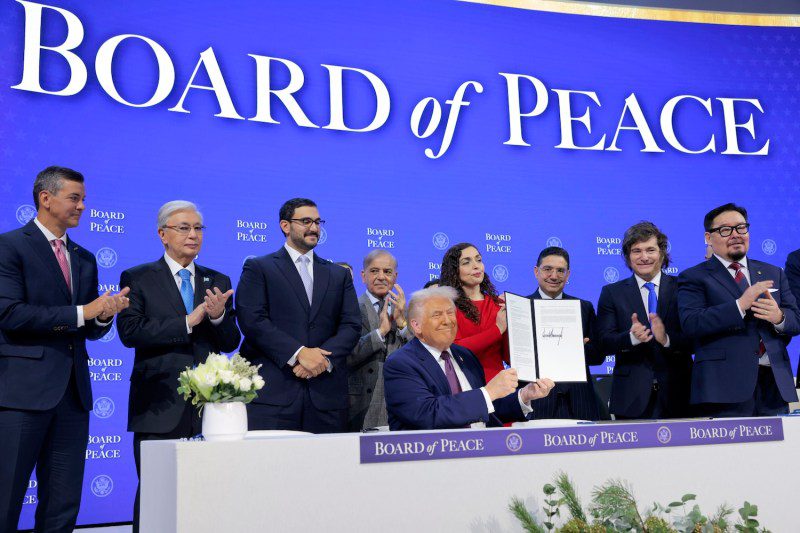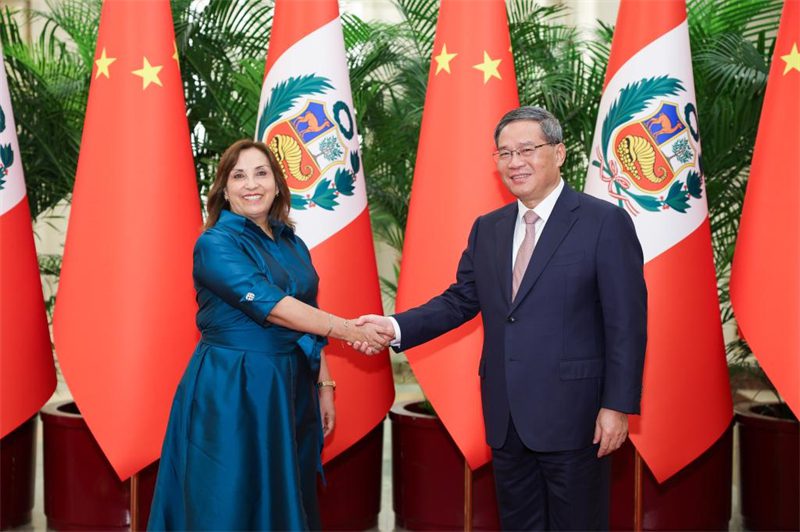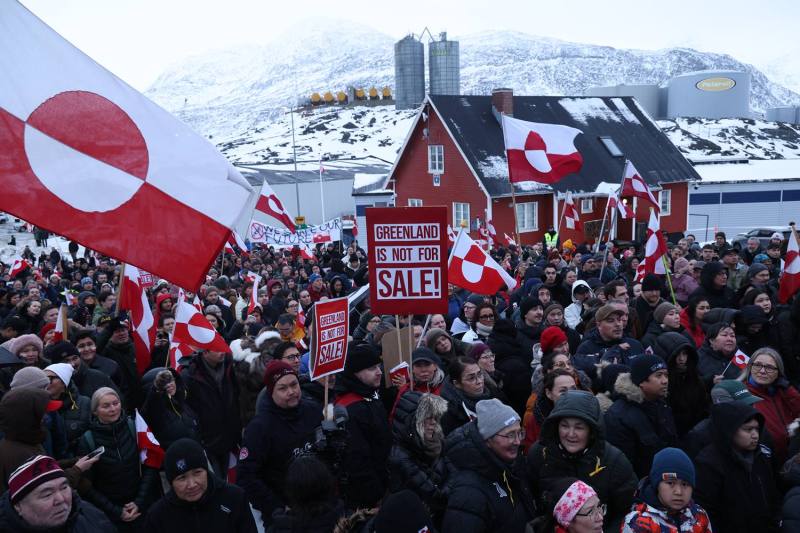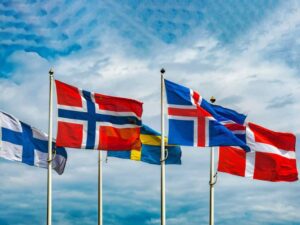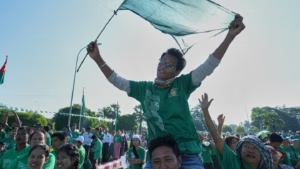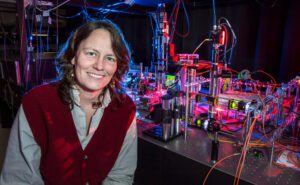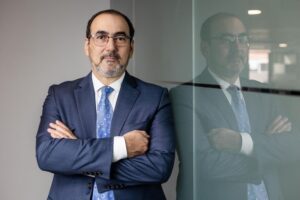Key Impact Points:
- Evolving Financial Architecture: The Bretton Woods institutions like the World Bank and IMF have not sufficiently adapted to meet the unique challenges of Small Island Developing States (SIDS), highlighting the need for a more equitable global financial system.
- Challenges for SIDS: SIDS face existential threats from climate change, economic volatility, and social inequities, requiring a tailored, resilience-focused, and sustainable development approach.
- Development Bank for Resilient Prosperity (DBRP): The DBRP aims to address gaps in the current multilateral development bank ecosystem by providing innovative financial solutions and promoting strategic partnerships to support the resilient and sustainable development of vulnerable nations.
- Nature-Based and Real-World Assets: Integrating Nature-Based Assets and Real-World Assets into financial solutions is central to the DBRP’s strategy, as these assets provide critical ecosystem services and direct economic contributions essential for sustainable development.
- Call for Global Action: The article urges the international community to reimagine and redefine the global financial system, emphasizing the importance of partnerships among private sector entities, philanthropists, academic institutions, and civic leaders in driving meaningful change and fostering resilience and prosperity for all nations.
Eighty years ago today, the Bretton Woods Conference set the foundation for the international financial architecture that has shaped our world. The creation of institutions like the International Bank for Reconstruction and Development (World Bank) and the International Monetary Fund (IMF) marked a significant leap in establishing institutions that could coordinate and foster global economic stability and cooperation. However, as we reflect on this milestone, it is evident that this groundbreaking architecture and its subsequent evolution has not sufficiently evolved to meet the unique challenges faced by the world’s most vulnerable nations, particularly Small Island Developing States (SIDS). Further, it is clear that any one institution may be unable to meet the needs of the global community, which are diverse, given the varied cross-section of needs, We posit that any meaningful and sustainable reform of the global financial architecture needs to redress how the global architecture can meet in an equitable way the needs of all members of the international architecture!
As the former President of the Caribbean Development Bank, I have witnessed firsthand the constraints and limitations inherent in the current multilateral development bank (MDB) ecosystem. These institutions, while instrumental in driving global development, often fall short in providing adequate voice/representation for SIDS, are not sufficiently innovative in delivering access to adequate and affordable financing, and insufficiently adaptive in integrating vulnerability and resilience in debt, investment, and sustainability frameworks. Addressing these would go a long way in driving global development. Second, because of charter limitations and an inability to focus on the existential threat from climate change that SIDS face, we can ask whether it is an opportune time (like at the end of World War III) to charge an institution to deliver on objectives that matter for all SIDS? Indeed, SIDS nations face existential threats from climate change, economic volatility, and social inequities that demand a custom-tailored, resilience-focused, and sustainable development approach capable of overcoming their challenges.
Today, I am honored to spearhead the Development Bank for Resilient Prosperity (DBRP) initiative, which will establish a new multilateral development bank designed to address these gaps and inadequacies. The DBRP aims to be more than just a financial institution; it aspires to be a beacon of light and hope, and a catalyst of change for SIDS. Our mission is clear: to support the resilient and thereby sustainable development of the most vulnerable nations through innovative financial solutions to propel the fit-for-purpose investments in productive capacity and capacity building while promoting unwavering global solidarity through strategic partnerships.
In the margins of the SIDS4 Summit, Heads of Government from across the Caribbean to the Pacific signed a Letter of Commitment and formally endorsed the DBRP initiative. This collective endorsement signifies a unified commitment to creating a robust and adaptive financial institution that addresses the unique challenges of SIDS.
Central to the DBRP’s strategy is the integration of Nature-Based Assets and Real-World Assets (RWA) into our financial solutions. Nature-Based Assets, such as forests, wetlands, mangroves, and coral reefs, provide critical ecosystem services (for example, carbon sequestration) that support biodiversity, mitigate climate change, and enhance resilience against natural disasters. Real world natural assets refer to tangible, physical assets found in the natural environment, including land, water bodies, mineral deposits, forests, and other natural resources. These assets are valued for their direct economic contributions, such as raw materials, and their ecological functions. By valuing and investing in these components of the natural environment (broadly, natural assets), we can drive sustainable development that aligns with the ecological and economic realities of SIDS. These natural assets provide economic, social, and environmental value that are crucial in building the foundation for long-term prosperity and stability in vulnerable regions.
The time has come for the international community to reimagine and redefine the global financial system. This is not merely an anniversary to be celebrated but a call to action for all stakeholders to come together and forge a new path forward. The DBRP movement is not just about creating another MDB; it is about transforming how we perceive and address the needs of vulnerable nations.
Change the World - Subscribe Now
Partnerships among the private sector, family offices, philanthropists, foundations, academic institutions, and civic leaders have a crucial role to play in this transformative journey. The challenges we face are too vast and complex for any single entity or sector to tackle alone. We need an “all hands on deck” approach, where every stakeholder contributes its unique strengths and resources towards solving system-wide challenges with an integrated systems approach.
Family offices and philanthropists, in particular, possess the agility and foresight to invest in innovative solutions that can drive meaningful change. By supporting the DBRP, they can help build a financial institution that prioritizes resilience and sustainability, ensuring that SIDS are not just surviving but thriving in the face of adversity. Foundations and the private sector bring expertise, capital, and a track record of impact-driven initiatives. Their involvement can amplify the DBRP’s efforts, fostering public-private partnerships that deliver scalable and sustainable solutions. Universities can contribute cutting-edge research, data analytics, and innovative solutions tailored to the unique needs of SIDS, while civic leaders can mobilize community support and ensure that development initiatives are inclusive and locally driven.
By joining forces with the DBRP, these stakeholders can help redefine success in international development—one that values inclusivity, resilience, and prosperity for all.
As we commemorate the closing day of the Bretton Woods Conference, let us honor its legacy by addressing its shortcomings. Let us reimagine a global financial system that is equitable, inclusive, and adaptive to the needs of all nations, especially those most vulnerable. The DBRP stands ready to help lead this charge, but we cannot do it alone. We need the collective will and commitment of the global community to make this vision a reality.
In this defining moment, let us seize the opportunity to create a more just and resilient world. Join us in the DBRP movement and be a part of this historic endeavor. Together, we can build a future where every nation, no matter how small, has the chance to prosper and thrive.
Dr. Gene Leon is the former President of the Caribbean Development Bank and is currently spearheading the Development Bank for Resilient Prosperity (DBRP), a new multilateral development bank focused on supporting the sustainable and resilient development of Small Island Developing States (SIDS).

 Follow SDG News on LinkedIn
Follow SDG News on LinkedIn

